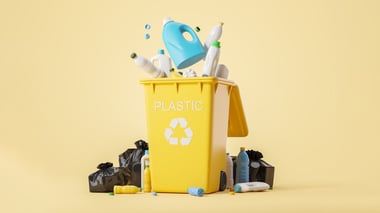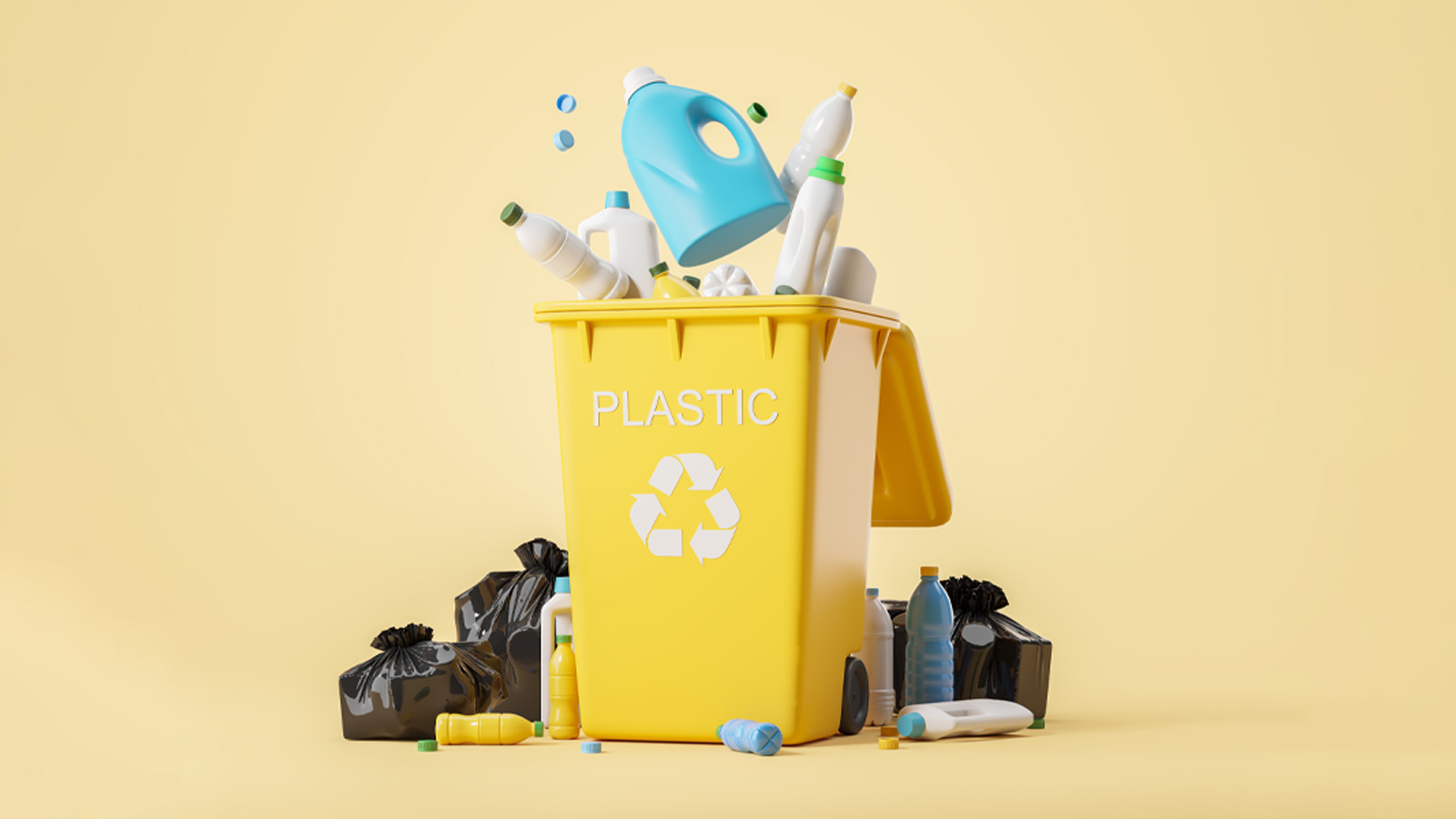After months of negotiations, the European Commission, the European Parliament and the European Council reached an important agreement in November 2023 to drastically reduce plastic waste exports. In this article, we tell you all about the European agreement. You can also read why Milgro believes that less waste of raw materials is the most important solution in dealing with plastic waste.
Plastic: for decades, this versatile material has been a popular application for products and packaging. We all use a lot of plastic. A lot. In addition to the many benefits that plastic offers, its harmful environmental effects are now common knowledge.
The following will not be news to you. Plastic can end up as litter in oceans, rivers and on land. This has a negative impact on ecosystems. Animals swallow plastic or become entangled in it, resulting in injuries and suffocation. Microplastics find their way into our food chains.
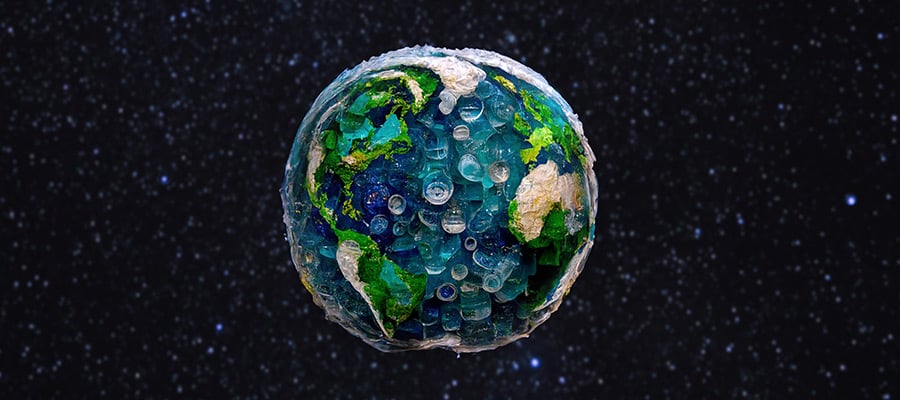
Not to mention the CO2 emissions released during the production, breakdown and recycling of plastic. Or the way that plastic is processed: much European waste is now shipped to other countries. There it has negative consequences for people and the environment.
Call for export ban on plastic waste
Several NGOs have been fighting for years to ban the export of plastic waste. They call it a major problem with far-reaching consequences for people and the environment. In 2022, more than 1 million tons of European plastic waste was shipped for processing. Half of all plastic waste shipped ended up in non-OECD countries, such as Malaysia, Vietnam, Indonesia and Thailand. One-third ended up in Turkey.
However, these countries do not always have the proper infrastructure to process the plastic safely. Due to limited regulations, recycling facilities often do not meet our environmental standards and working conditions.
Instead of being recycled, the plastic is often burned or in some cases even illegally dumped. Waste also often ends up in landfills, resulting in soil contamination, water pollution and severe environmental degradation.
European agreement: no more plastic shipped to non-OECD countries
The European Commission, European Parliament and European Council now agreed on a revision of the Waste Shipment Regulation. The new European agreement should end the export of plastic waste to non-OECD countries in two and a half years. Europe wants to introduce strict procedures and controls for this. This should prevent our European plastic waste from causing health and environmental problems in other countries.
There are also plans to impose strict conditions on the movement of plastic waste between EU countries. The recycling of plastic in Europe should also be further encouraged. All with the goal of processing or reusing plastic waste locally as much as possible. Milgro welcomes these plans. Reuse is on a higher rung in the R-ladder and often costs less energy than recycling.
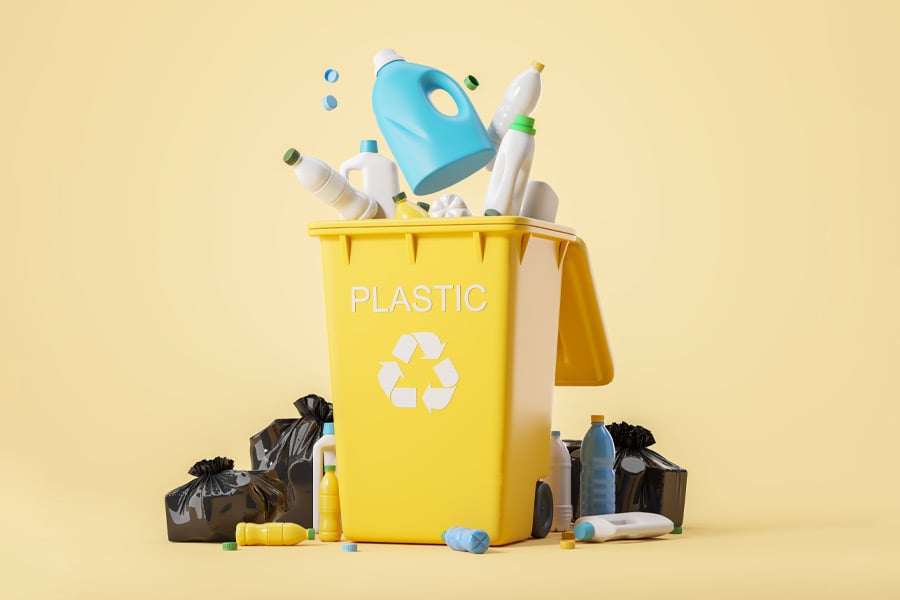
Milgro welcomes these plans. Reuse is on a higher rung in the R-ladder and often costs less energy than recycling.
Researcher do still worry about increased shipping of plastic waste to countries like Turkey, which do belong to the OECD. For example, the waste infrastructure in Turkey is not adequately equipped to handle our plastic waste, perpetuating the same problem. This is why NGOs are advocating an export ban to all countries.
Environmental benefits
The European agreement regarding the export of plastic waste also offers benefits. It reduces the chance of plastic contamination. The infrastructure in non-OECD countries for processing plastic does not always meet our requirements. Burning and dumping plastic waste leads to plastic pollution. By no longer shipping our waste to these countries, this pollution is likely to decrease.
Because the plastic is improperly processed in non-OECD countries, recycling is often not possible. This requires the production of new plastic, which releases CO2. If plastic is no longer exported to these countries, but is recycled as much as possible, this will also reduce CO2 emissions.
Plastic recycling: the best solution?
Recycling is an important strategy to reduce the increasing amount of plastic waste. Reusing materials relieves pressure on natural resources and is therefore preferable to recycling on the R ladder. Still, recycling is a popular treatment for plastic waste. It generally takes less energy than producing entirely new plastic.
It sounds like a great solution, but is it actually the best one? It is good to look for an even better alternative because there are several challenges and drawbacks to recycled plastic:
- Energy consumption
- Limited recyclability
- Loss of quality
Energy consumption recycling
Unfortunately, plastic recycling is far from energy-neutral. Plastic must go through several stages before it is suitable for reuse. Think sorting, washing and finally recycling. Each stage still requires a lot of energy.
Unsuitable for recycling
Not all types of plastic are suitable for recycling. For example, the physical properties of the plastic play a role. For example, many plastics are glued, printed or composed of different plastics. This makes it difficult to obtain a high-quality recycled material. But contamination of plastics, such as from food residues, dyes or other materials, also interferes with the recycling process.
Quality loss plastic recycling
The loss of quality represents another disadvantage of plastic recycling. Because the plastic is heated during the recycling process, compounds can break. This leads to lower quality plastic, especially when compared to virgin plastic. The current demand for plastic and the available raw materials also do not make the production of new plastic a sustainable option. Therefore, we need to consider other options on the R ladder.
Milgro: recycling as a means, not an end
Thanks to the European agreement, we will soon no longer be able to ship our plastic waste out of sight. When we are literally stuck with our waste, it will become even more obvious how much plastic we consume.
Earth Overshoot Day shows us annually that we consume far more raw materials than the earth gives us back. This is why Milgro is a strong advocate of reducing the waste of raw materials (reduce). At Milgro, we see recycling as a means, but never as an end. Because what is really the best solution for our plastic waste? Is it recycling, reuse, reduce?
Understanding what we consume and use helps us to find the right alternatives. Milgro's experts are happy to advise you on the best method to keep the precious raw material plastic as long as possible and not let it become waste.
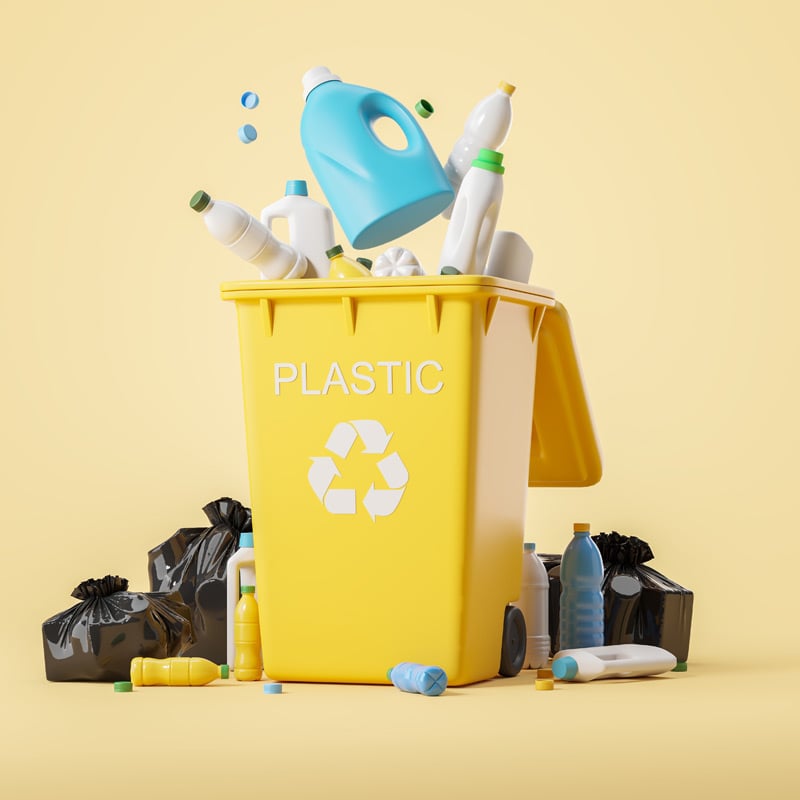
Would you like to know more about processing plastic waste?
Would you like to know more about processing your plastic waste? Are you curious about Milgro's advice on plastics? Then make an appointment with our experts. We would like to show you how your company can make an impact and contribute to a circular economy. This way we work together towards a more sustainable future.
Stay informed
Stay up to date on all new developments? Follow us on LinkedIn or Instagram. Or subscribe to the newsletter. Are you curious about what Milgro can do for your operations and waste process? Contact us






